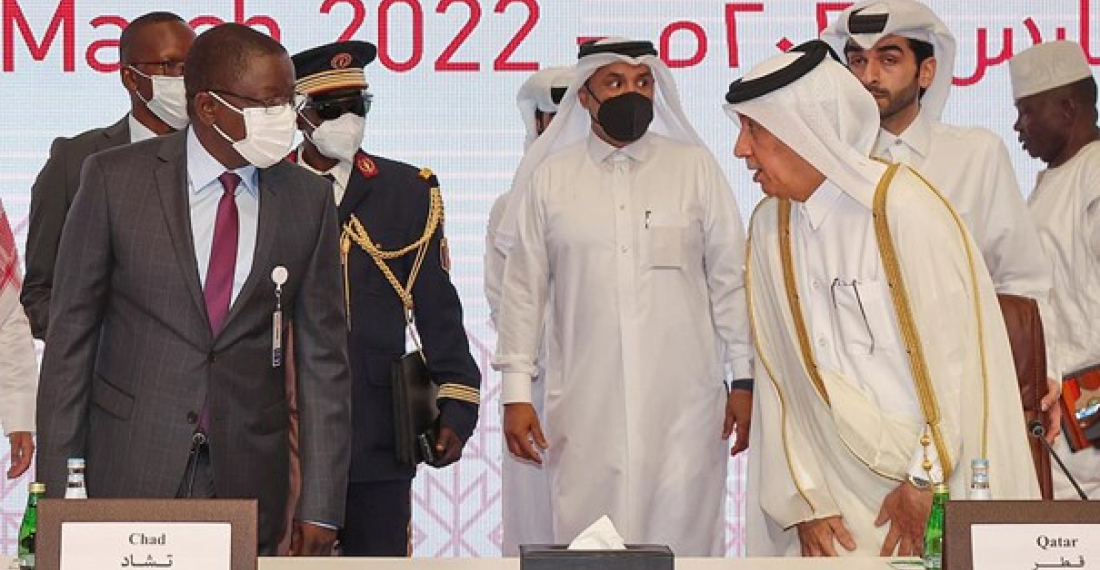Talks between the Chad's central government and Chadian politico-military groups began on Sunday, 13 March in Doha with the aim of putting an end to the ongoing rebellion and facilitate the holding of early elections.
This dialogue is a crucial step towards the reconciliation promised by the Chadian transitional authorities, whose inclusive national dialogue planned for May in N'Djamena would be meaningless without the presence of all the rebel groups.
Indeed, this landlocked African country is looking for a way to ease the divisions that have accentuated since President Idriss Déby - in power for 30 years - died fighting jihadist rebels on the northern front on 20 April 2021. On the same day, his son, Mahamat Idriss Déby Itno, proclaimed himself head of the Transitional Military Council (CMT), made up of 15 army generals, before promising to draft a new constitution and to hold free and democratic elections within 18 months, a deadline that can be extended once.
The 44 Chadian opposition groups invited to Doha demanded the release of prisoners of war, the return of confiscated property and a general amnesty as conditions for the peace talks. The military government announced that it had already released hundreds of prisoners and granted amnesty to several rebel leaders.
As the talks began on Sunday morning, the military group FACT - the Front for Change and Concord in Chad responsible for the death of former president Idriss Deby Itno - decided to boycott the opening ceremony. The six representatives of the group criticized the lack of inclusiveness in the meeting, the lack of mediation between the Chadian authorities and the military groups, as well as the excessive number of politico-military groups present at the meeting.
According to FACT, Qatar should play the role of mediator rather than simply facilitator, and regretted not being associated with the elaboration of the agenda during the pre-dialogue discussions. Finally, they argued that the disproportionate number of politico-military groups was a strategy to dilute the voice of the main armed groups in the negotiations.
To address this initial hurdle, Qatar initially confirmed its impartial position as mediator, while making two proposals to bring the FACT group back to the negotiating table. These were to suspend the work for three days to allow the armed groups to consult each other, and for each side to select a dozen representatives to guide and facilitate the discussion.
On Sunday, Chadian Prime Minister Albert Pahimi Padacké reminded participants that "peace requires more courage and maturity than war".







